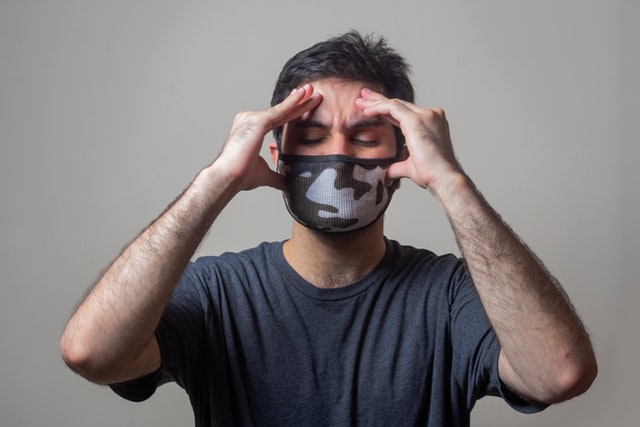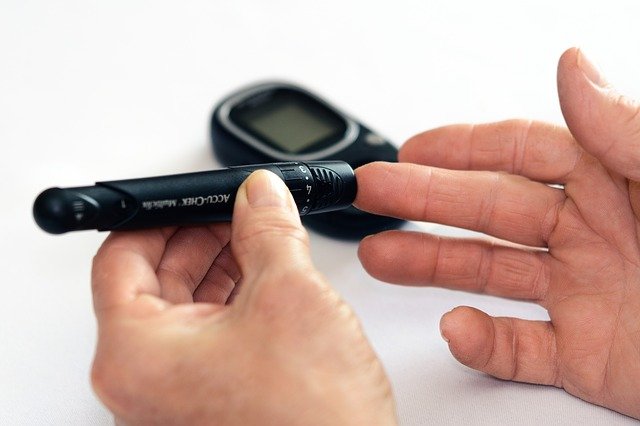As we approach the two-year mark since the start of the COVID-19 pandemic, we are seeing many trends and side effects of the disease. COVID-19 symptoms vary depending on the patient’s age, current health status, and severity of the illness. Most recover two to three weeks after contracting the virus, but some experience lingering health problems several months after getting infected.
According to the World Health Organization (WHO), most individuals who contract SARS-CoV-2, the virus that causes COVID-19, fully recover from it. However, there is data to suggest that 10% to 20% of patients endure long-term side effects of COVID-19 after initial infection. Even people who didn’t struggle with severe COVID go through long-term health concerns.
Two years may feel like a long time, but COVID-19 is a relatively new disease. Keep in mind that experts are still learning more about its characteristics and the best course of treatment. Only further studies in the coming months and years will tell how long-term these side effects really are, why some people get them, and who is primarily at risk. Due to insufficient data, the cause of long COVID remains a mystery.
What is Long COVID?
Long COVID, also called chronic COVID or post-COVID syndrome, refers to ongoing signs and symptoms people experience months after testing positive. These ongoing health issues can’t be associated with conditions other than COVID-19.
The Most Common Long-Term Effects of COVID-19
Shortness of Breath
Shortness of breath impacts more than just the respiratory system. Researchers say that breathing difficulties may point to both lung and heart abnormalities due to COVID-19 infection. SARS-CoV-2 may affect the heart in various ways. It can damage heart muscles in severe cases and cause scarring and inflammation.
There’s still very little information available regarding the development of heart conditions after COVID-19. The good news is that shortness of breath doesn’t automatically equate to something serious. In some instances, it’s just a result of stress and anxiety that can get better by performing deep breathing exercises.
Brain Fog
Brain fog involves poor concentration, confusion, forgetfulness, and a lack of mental clarity. It’s not a medical term, but it’s been continuously used to describe a neurological symptom commonly felt months after the illness has passed. They feel constant headaches, numbness, weakness, and mental exhaustion.
Brain fog makes it hard for people to go about their day-to-day routines. Research shows that among 235,000 COVID-19 patients, 33.62% reported mental and neurological problems six months after getting sick. Fortunately, there are ways to properly manage it. A regular exercise routine, a good night’s sleep, and a healthy diet can help you beat brain fog.

Diabetes
Coronaviruses primarily attack the lungs. However, it affects other body organs, too. Growing evidence suggests that it also damages the pancreas, an organ that helps break down food, produce insulin, and regulate blood sugar. According to health experts, SARS-CoV-2 can infect the pancreas’s insulin-producing cells and disrupt insulin production.
Due to insulin deficiency, even healthy people develop diabetes after COVID-19 infection. A 2020 global analysis has shown that 14.4% of hospitalized severe COVID-19 patients got diabetes. Because of this possibility, those who caught the virus should watch out for signs and symptoms of diabetes, including increased thirst, blurred vision, and frequent urination.

Loss of Sense of Smell
Approximately 80% of COVID-19 patients experience loss of taste or smell. Nearly all of them regain it naturally within a few weeks. However, some fail to recover these abilities immediately after recovering from the virus. The cause behind such impairments is still unknown. But one possibility points to damaged sustentacular cells, the cells that support olfactory neurons.
At this point, what’s clear is that loss of smell due to COVID-19 appears to last longer than other respiratory conditions. To speed up their recovery, affected people can resort to smell training, or the process of smelling different fragrances each day for months. Repeated exposure to different types of scents helps people recover.
Depression, Stress, and Anxiety
The long-term side effects of COVID-19 extend way beyond physical vulnerabilities. Like other viral infections, it attacks the central nervous system, which affects our mental health. Many patients who have recovered from COVID-19 still experience mental health issues, including insomnia, depression, anxiety, and post-traumatic stress disorder.
These psychological conditions are most likely the result of pandemic-related situations, from job loss and financial problems to isolation and anxiety. Unfortunately, there are no immediate solutions available, but there are ways to practice resilience while living in a pandemic-stricken world. If things are not getting any better after stepping up your self-care habits, seek a health professional right away to get the support and treatment you need.

Long COVID: Is There A Way To Prevent It?
Since thousands of people worldwide still get COVID-19, avoiding the virus and its potential side effects seems impossible. But there is only one way to lessen the risks of suffering from long-term side effects of COVID-19: minimize your chances of getting infected with it in the first place. Prevention is still better than a cure.
Trust the science-backed methods of mitigating the spread of disease by wearing the appropriate face mask. Washing your hands frequently and correctly, social distance where possible, and sanitize dirty surfaces.
Of course, last but not least, it’s crucial to get vaccinated. It’s still the best way to slow the spread of the virus and to reduce your chances of contracting new variants. Even if you’ve already contracted and recovered from a COVID-19 infection, you should still get vaccinated, as emerging studies show that getting vaccinated fortifies your immune system. All COVID-19 patients can get long COVID, but vaccinated people are less likely to experience it.













